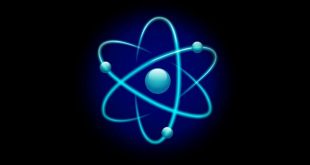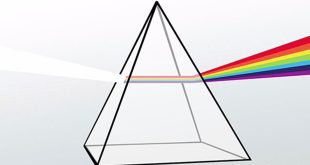NCERT 9th Class (CBSE) Science: Energy and Work Quiz 19 Multiple Choice Questions related to NCERT 9th Class (CBSE) Science: Energy and Work Quiz It states that energy can neither be created nor destroyed. It can only change its form. The winning team does work. The work is equal to …
Read More »NCERT 9th Class (CBSE) Science: Sound
Sound – 9th Class NCERT CBSE Science Chapter 12 Question: Can sound travel through: Carbon Water Answer: yes yes Question: Can sound travel through vacuum? Answer: No, sound cannot travel through vacuum. Question: Name the type of waves which are used by astronauts to communicate with one another on moon (or in …
Read More »9th Class (CBSE) Science: Atoms and Molecules
Question: Define law of conservation of mass. Answer: In a chemical reaction mass can neither be created nor destroyed. E.g., 2Na + Cl2 —–> 2NaCl 2 x 23 + 2 x 35.5 ——> 2(23 + 35.5) Question: Explain law of constant proportion. Answer: In a chemical substance the elements are always …
Read More »NCERT 9th Class (CBSE) Science: Energy and Work
Question: Does work done depend upon the velocity of the body. Answer: No. Question: State the law of conservation of energy. Answer: It states that energy can neither be created nor destroyed. It can only change its form. Question: In a tug-of-war one team gives way to the other. What …
Read More »NCERT 9th Class (CBSE) Science: Atoms and Molecules Quiz
NCERT 9th Class (CBSE) Science: Atoms and Molecules Quiz 20 Multiple Choice Questions related to NCERT 9th Class (CBSE) Science: Atoms and Molecules Quiz: In a chemical substance the elements are always present in definite proportions by mass. E.g., In water, the ratio of the mass of hydrogen to the …
Read More »NCERT 8th Class (CBSE) Science: Pollution of Water and Air – Quiz
NCERT 8th Class (CBSE) Science: Pollution of Water and Air – Quiz 23 Multiple Choice Questions related to NCERT 8th Class (CBSE) Science: Pollution of Water and Air – Quiz: Water is renewed continuously in nature through the water cycle. Water containing harmful impurities is said to be polluted. Pollution occurs …
Read More »NCERT 8th Class (CBSE) Science: Pollution of Water and Air
Question: What harm can dumping of untreated sewage into a river cause? Answer: Untreated sewage from homes is often disposed off into rivers. These wastes contain many harmful microorganisms – bacteria, viruses, fungi and parasites that cause diseases such as diarrhoea, dysentery, cholera, typhoid and jaundice. Question: Why is hot water …
Read More »NCERT 8th Class (CBSE) Science: Chemical Effects of Electric Current – Quiz
NCERT 8th Class (CBSE) Science: Chemical Effects of Electric Current – Quiz 23 Multiple Choice Questions related to NCERT 8th Class (CBSE) Science: Chemical Effects of Electric Current – Quiz: The flow of electrons constitutes an electric current. Conventional current flows from positive to negative terminal; electronic current lows from negative …
Read More »NCERT 8th Class (CBSE) Science: The Universe – Quiz
NCERT 8th Class (CBSE) Science: The Universe – Quiz 26 Multiple Choice Questions related to NCERT 8th Class (CBSE) Science: The Universe – Quiz: The universe comprises everything that exists, which includes stars, planets, moons, other celestial objects, everything that exists on these celestial objects, as well as the vast empty …
Read More »NCERT 8th Class (CBSE) Science: Refraction and Dispersion of Light – Quiz
NCERT 8th Class (CBSE) Science: Refraction and Dispersion of Light – Quiz 20 Multiple Choice Questions related to NCERT 8th Class (CBSE) Science: Refraction and Dispersion of Light – Quiz: The bending of light as it passes from one transparent medium to another is called refraction. It occurs because light travels at …
Read More » Class Notes NCERT Solutions for CBSE Students
Class Notes NCERT Solutions for CBSE Students






